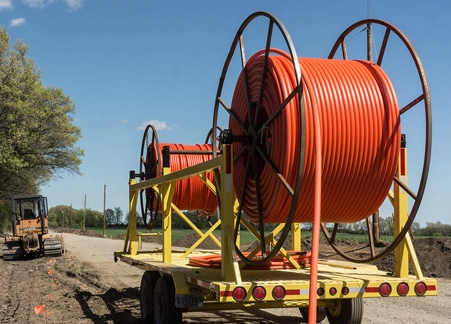
-
 Afrikaans
Afrikaans -
 Albanian
Albanian -
 Amharic
Amharic -
 Arabic
Arabic -
 Armenian
Armenian -
 Azerbaijani
Azerbaijani -
 Basque
Basque -
 Belarusian
Belarusian -
 Bengali
Bengali -
 Bosnian
Bosnian -
 Bulgarian
Bulgarian -
 Catalan
Catalan -
 Cebuano
Cebuano -
 Corsican
Corsican -
 Croatian
Croatian -
 Czech
Czech -
 Danish
Danish -
 Dutch
Dutch -
 English
English -
 Esperanto
Esperanto -
 Estonian
Estonian -
 Finnish
Finnish -
 French
French -
 Frisian
Frisian -
 Galician
Galician -
 Georgian
Georgian -
 German
German -
 Greek
Greek -
 Gujarati
Gujarati -
 Haitian Creole
Haitian Creole -
 hausa
hausa -
 hawaiian
hawaiian -
 Hebrew
Hebrew -
 Hindi
Hindi -
 Miao
Miao -
 Hungarian
Hungarian -
 Icelandic
Icelandic -
 igbo
igbo -
 Indonesian
Indonesian -
 irish
irish -
 Italian
Italian -
 Japanese
Japanese -
 Javanese
Javanese -
 Kannada
Kannada -
 kazakh
kazakh -
 Khmer
Khmer -
 Rwandese
Rwandese -
 Korean
Korean -
 Kurdish
Kurdish -
 Kyrgyz
Kyrgyz -
 Lao
Lao -
 Latin
Latin -
 Latvian
Latvian -
 Lithuanian
Lithuanian -
 Luxembourgish
Luxembourgish -
 Macedonian
Macedonian -
 Malgashi
Malgashi -
 Malay
Malay -
 Malayalam
Malayalam -
 Maltese
Maltese -
 Maori
Maori -
 Marathi
Marathi -
 Mongolian
Mongolian -
 Myanmar
Myanmar -
 Nepali
Nepali -
 Norwegian
Norwegian -
 Norwegian
Norwegian -
 Occitan
Occitan -
 Pashto
Pashto -
 Persian
Persian -
 Polish
Polish -
 Portuguese
Portuguese -
 Punjabi
Punjabi -
 Romanian
Romanian -
 Russian
Russian -
 Samoan
Samoan -
 Scottish Gaelic
Scottish Gaelic -
 Serbian
Serbian -
 Sesotho
Sesotho -
 Shona
Shona -
 Sindhi
Sindhi -
 Sinhala
Sinhala -
 Slovak
Slovak -
 Slovenian
Slovenian -
 Somali
Somali -
 Spanish
Spanish -
 Sundanese
Sundanese -
 Swahili
Swahili -
 Swedish
Swedish -
 Tagalog
Tagalog -
 Tajik
Tajik -
 Tamil
Tamil -
 Tatar
Tatar -
 Telugu
Telugu -
 Thai
Thai -
 Turkish
Turkish -
 Turkmen
Turkmen -
 Ukrainian
Ukrainian -
 Urdu
Urdu -
 Uighur
Uighur -
 Uzbek
Uzbek -
 Vietnamese
Vietnamese -
 Welsh
Welsh -
 Bantu
Bantu -
 Yiddish
Yiddish -
 Yoruba
Yoruba -
 Zulu
Zulu


Nov . 18, 2024 09:44 Back to list
Investigating the Advantages and Applications of Road Measurement Wheels in Various Contexts
Exploring the Use and Benefits of Road Measurement Wheels
In the realm of civil engineering and road construction, accurate measurements are paramount for ensuring the safety and reliability of infrastructure. Among the various tools employed for this purpose, road measurement wheels stand out as an efficient and practical solution. These devices, designed to measure distances with precision, are integral to a wide range of applications, from surveying and mapping to maintenance and inspection of roadways.
Road measurement wheels, often referred to as “distance-measuring wheels” or “surveying wheels,” consist of a wheel attached to a handle. As the wheel rolls along a surface, a built-in digital or mechanical counter records the distance traveled. This simple yet effective design offers numerous advantages, making it an essential tool for professionals in construction, landscaping, and surveying.
One of the primary benefits of using road measurement wheels is their ease of use. Unlike traditional measuring methods, such as tape measures or odometers, measurement wheels allow users to cover long distances quickly and efficiently. This is particularly beneficial in large-scale projects where extensive areas need to be measured, such as highways, parking lots, and athletic fields. The ability to obtain measurements swiftly can significantly enhance productivity and reduce labor costs.
Moreover, the accuracy of measurement wheels cannot be overlooked. High-quality models are equipped with precision gears and calibrated wheels, ensuring reliable measurements that construction professionals can trust. This precision is crucial when creating project specifications, determining material quantities, and ensuring compliance with safety standards.
exploring the use and benefits of road measurement wheels ...

Another important advantage is the versatility of road measurement wheels. They can be used on various surfaces, including asphalt, concrete, and gravel, making them suitable for a wide range of applications. Whether measuring the length of a new road, assessing the condition of existing pathways, or planning the layout of urban developments, these tools can adapt to different environments seamlessly.
In addition to their practical applications in construction and surveying, road measurement wheels play a role in environmental studies and urban planning. They assist in mapping pedestrian pathways, evaluating noise pollution levels, and planning efficient public transportation routes. By providing accurate distance measurements, they contribute to informed decision-making in urban development and infrastructure improvement.
Lastly, the portability of measurement wheels adds to their appeal. Lightweight and easy to carry, they can be transported to various job sites without hassle. This convenience ensures that professionals have access to accurate measurement tools wherever needed, facilitating effective planning and execution of projects.
In conclusion, road measurement wheels are invaluable tools in the construction and engineering industries. Their ease of use, accuracy, versatility, and portability make them ideal for a myriad of applications. As infrastructure needs continue to grow, the importance of reliable measurement tools like road measurement wheels will only increase, supporting the development of safer, more efficient roads and urban spaces.
Latest news
What Are Construction Tools and How Are They Used?
NewsJul.11,2025
Professional-Grade Duct Rodding Tools for Superior Cable Installation
NewsJul.11,2025
Enhancing Safety and Efficiency with Modern Hot Stick Solutions
NewsJul.11,2025
Empowering Cable Installation with Advanced Rodder Solutions
NewsJul.11,2025
Elevate Your Cable Installation Projects with Cable Pulling Tools
NewsJul.11,2025
Efficient Cable Handling Solutions: Cable Rollers for Sale
NewsJul.11,2025











